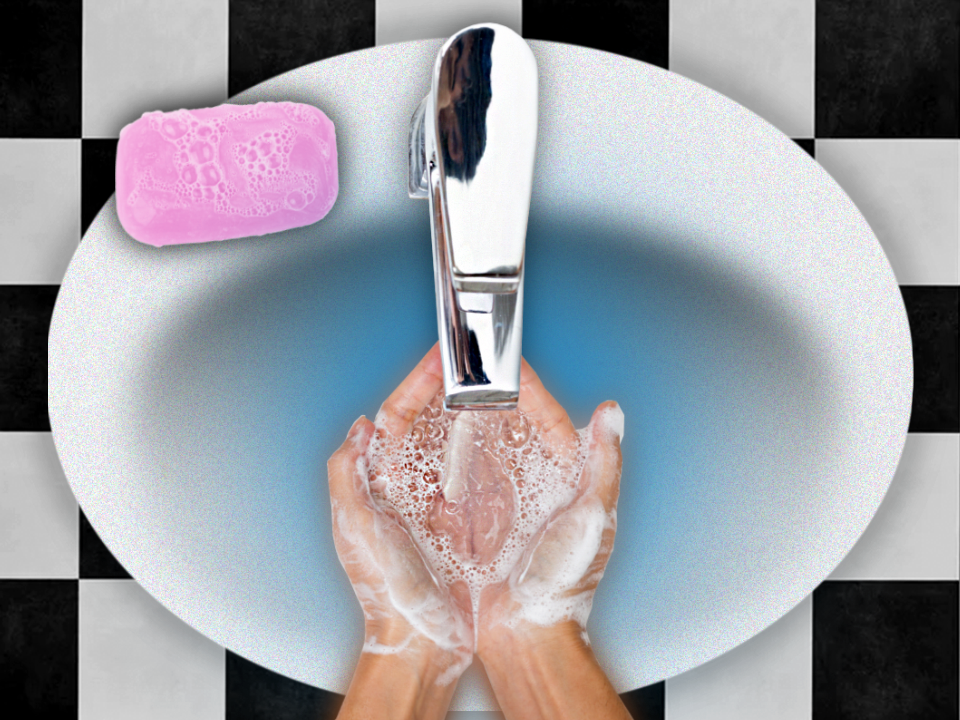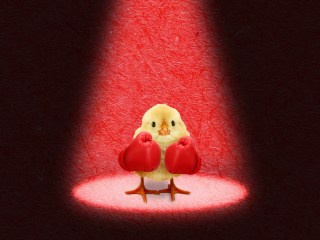Here’s What OCD Actually Is (and Isn’t)
Please stop saying you're "so OCD" about cleaning.
The bestie whose home looks like Marie Kondo’s dream, the cousin who takes pride in his meticulous grooming, and the coworker whose office is the most organized in the entire building all have one thing in common: Their quirks aren’t OCD or obsessive-compulsive disorder. This idea that OCD is just “a quirky behavior” isn’t only inaccurate, it’s harmful, says Jenny Yip, PsyD, a clinical psychologist who specializes in the condition and lives with it herself.
In reality, OCD involves so much more than wanting things to be “just right,” and it can be extremely distressing to live with. I know that distress all too well. I’ve lived with OCD for well over a decade and, while I’ve learned to manage it, my symptoms still flare up from time to time (like this fall when I have to send my oldest off to middle school…yikes). These flare-ups are no fun, but I’m thankful that OCD doesn’t control my life the way it did before treatment. Still, it’s hard to escape the stigma and stereotypes that still surround this condition.
These stereotypes—like that it’s “so OCD” to want things arranged a certain way or to be super focused on cleanliness—can invalidate people’s experiences and may even make people less likely to get help for their own symptoms, explains Dr. Yip. So, let’s talk about what OCD actually is, who it affects, and how to get help if you or a loved one is struggling with it.
One quick thing before we dive into the details: Mental health is complex and everyone has a unique experience, so don’t go diagnosing yourself just because you read a few articles on the internet (though, we do appreciate you stopping by to learn a few things). If this resonates with you, consider it a jumping-off point in your journey to getting care. OK, let’s get into it…
What is OCD?
OCD is a chronic mental health condition characterized by uncontrollable thoughts (obsessions) and repetitive behaviors (compulsions) that someone feels like they have to do in response to those intrusive thoughts. All humans “have thoughts that are kind of weird and sometimes they're scary,” says Erin Nghe, a licensed clinical social worker and OCD therapist. But that doesn’t mean that we’re all a little OCD. In people with the disorder, these thoughts are uncontrollable and get stuck in a person’s head. And while the compulsions offer temporary relief, they fuel a vicious cycle that can be so upsetting and time- and energy-consuming that they interfere with pretty much every aspect of your life.
I would eventually learn that the scary, disgusting, and unwanted thoughts and images that once overwhelmed me were actually “obsessions,” which I previously thought was just a word we used to describe things we love and can’t get enough of (like favorite foods, sports, a new eyeshadow palette, dismantling the patriarchy, etc.). But, in OCD, obsessions are the opposite of pleasant. They’re persistent, unwelcome, and distressing and can take myriad forms—including thoughts of contamination, causing harm, being responsible for something terrible happening, taboo images, your partner not really being The One (hello, relationship OCD), and more. For instance, an obsession that once incessantly plagued me was the thought of being responsible for my home burning down with my loved ones inside in the middle of the night. So, yeah, not exactly the same as being obsessed with football.
And then there are the compulsions, which are repetitive behaviors—including tapping, washing or cleaning, checking, counting, seeking excessive reassurance, or mental rituals—that someone feels a strong urge to perform to counter, calm, or shrink the unwanted thoughts. Often, there is an urge to repeat the compulsion in specific ways until it feels “just right.” During the worst of my OCD, obsessions about a house fire would elicit an irresistible urge to not only visually check that certain appliances or light switches were turned off, but to touch the switches to make sure. I couldn’t help but flip switches on, turn them back off, and tap them five times in a row to dampen the visions of my charred baby. Obsessions about fatal diseases and accidents claiming my loved ones compelled me to tap or knock on various items five times over and over again to dampen the upsetting thoughts. It didn't matter that I'm a rational person. OCD can justify and compartmentalize the utterly absurd.
Anyone can develop OCD.
With an estimated lifetime prevalence of 1-3% or more of the population, folks of all genders, ethnicities, and backgrounds can develop OCD, which tends to happen during adolescence or early adulthood. Research suggests that, on average, people might be dealing with symptoms up to 17 years before getting help. Those in certain marginalized groups face additional barriers, though more research is needed to tease out how to best serve different communities.
OCD “is a brain-based” and “neurobiological condition,” says Katia Moritz, PhD, a licensed psychologist who specializes in treating this condition. Researchers are still figuring out how it develops, but they think it boils down in large part to genetic variations that affect certain neural pathways, or what Dr. Moritz calls “a glitch in the brain.” And, to varying degrees, other risk factors for those genetically predisposed to the condition include stressful or traumatic life events (which can influence the content and severity of someone's symptoms) and environmental factors like observed behaviors, the onset of puberty, pregnancy and birth, and the effects of some infections and immune system disorders on the brain. Usually, these factors converge and lead to the gradual development of symptoms. Less common is a rapid onset of OCD in children following environmental triggers, like a streptococcal infection, that can happen seemingly overnight.
How is OCD diagnosed?
While there’s no blood test for OCD, diagnosis mainly comes down to identifying the obsessions and compulsions that take up a significant amount of time and interfere with your life.
Dr. Yip explains that misconceptions abound, “even within mental health professionals.” Underdiagnosis and misdiagnosis are far too common, in part because OCD manifests in so many different ways. For instance, a study published in 2015 in The Journal of Clinical Psychiatry found that about half of physicians misidentified OCD when reading patient descriptions in an online survey. This can lead to tangible harm—like when a new parent shares thoughts of harming their baby, a physician who doesn’t grasp OCD may unnecessarily involve child protective services.
Often, people with OCD are diagnosed with generalized anxiety disorder (GAD) instead. Children with OCD are often flagged as having ADHD instead because the conditions look outwardly similar—when a child is “ruminating over some horrific thing happening,” they may be “getting out of chairs” or “tapping” instead of focusing on whatever they’re supposed to be doing, says Dr. Yip. Even trickier, it’s not uncommon for someone with OCD to also have one or more other conditions, including GAD, ADHD, depression, and Autism Spectrum Disorders. To ensure that someone who is possibly experiencing OCD ends up in the right hands, it’s a good idea to use resources like the International OCD Foundation (IOCDF) to find vetted, qualified providers.
What does treatment for OCD look like?
While there’s no cure for OCD, that doesn’t mean that the condition has to dominate your life. Both therapy and medication (typically a class of drug called serotonin reuptake inhibitors) can be very effective for managing OCD. When it comes to therapy, a type of cognitive behavioral therapy (CBT) called exposure and response prevention (ERP) is known as the gold standard for OCD. Dr. Yip explains that in the exposure part of ERP, a trained therapist helps someone "purposely confront each of these intrusive obsessions" to train the brain to recognize that "even if it is horrible, I actually can tolerate it" without performing compulsions. In the response prevention half, the therapist helps the patient deal with the distress while doing something other than their compulsive behavior. For many people, this helps reduce those upsetting thoughts, as well as the power they hold over you.
Among a slew of other revelations, ERP helped me realize, Wait, I can choose to not check the stove over and over again and my home won’t catch fire. Don’t get me wrong, the first several times I had fire obsessions without doing my compulsions were extremely uncomfortable. It’s not a good feeling to stare a vivid image of your worst fears in the face without flicking them away, which is why starting this with a licensed mental health provider is key. But I’ll always count my lucky stars for the ERP that has empowered me to relegate OCD, which once ruled me, to the margins of my mind.
Though access to treatment including trained ERP specialists is still sorely lacking, there are more resources and low-cost options now than ever before. And here’s some good news: Around 70% of people who receive traditional outpatient ERP and/or medication can expect to find relief, according to the IOCDF.
The bottom line: If you have a gratifying obsession with caffeinated seltzer water, lifting weights, or whatever floats your boat, but don’t have incessantly disturbing obsessions, consider yourself fortunate. On the other hand, if reading this made you realize that you or a loved one might have OCD, take a deep breath. As weird or scary or revolting as someone’s thoughts may seem and no matter how irrational the rituals, there are millions and millions of people in a similar boat. While the road is far from easy, and advocates continue pushing for more recognition and resources for all people with OCD, it’s more feasible than ever to connect with others and start taking your life back.
Wondermind does not provide medical advice, diagnosis, or treatment. Any information published on this website or by this brand is not intended as a replacement for medical advice. Always consult a qualified health or mental health professional with any questions or concerns about your mental health.




